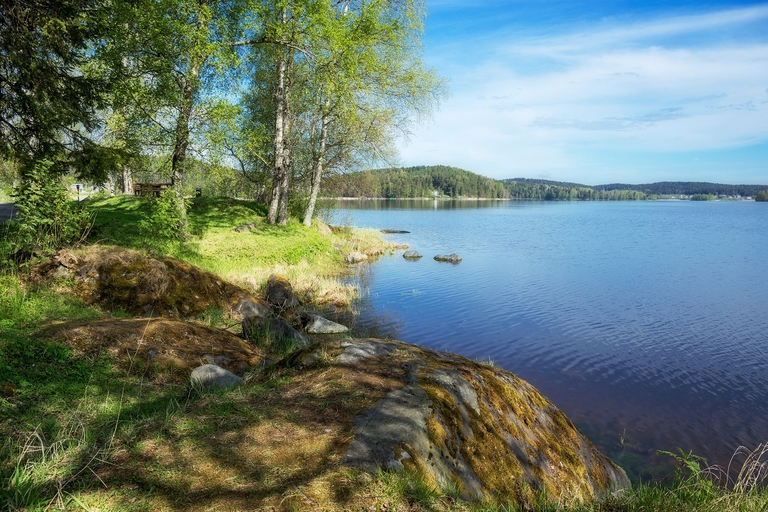
A report by Ember explains that in 2025 electricity generation from renewables (solar, wind and hydropower) surpassed that from fossil fuel sources.
A new national park has been established in the Republic of Karelia, Russia. It extends for 122,000 hectares, is home to rocky islands covered by lush forests and is one of the old continent’s largest.
Lake Ladoga is a huge lake – Europe’s biggest – located in a wild and inhospitable area in north-western Russia home to immense forests, bays, gulfs and rocky islets. It is home to the Ladoga seal, a freshwater subspecies of the ringed seal that can only be found in these waters. The area has an extraordinary nature value and has thus been declared a national park by Russia’s federal government.
The national park stretches for 122,000 hectares characterised by rocky islands covered by thick forests, and is one of the biggest protected areas of the old continent. The area will be accessible to all in two or three years’ time thanks to the development of a network of trails.
Greenpeace Russia has actively contributed to the establishment of the protected area by supporting the inclusion of important portions of land, identifying the most threatened species, and fighting wild fires and illegal logging. Also, Greenpeace has been successfully organising supervision camps for ten years in collaboration with other groups in order to prevent forest fires. Thanks to these activities the organisation has put out 80 fires on the islands during the tourist season.
The national park is the result of a long battle started 27 years ago. Along with Greenpeace Russia, more than 40,000 people, 40 scientists and 19 environmental organisations have opposed many oil companies that wanted to exploit some areas now included in the national park.
Siamo anche su WhatsApp. Segui il canale ufficiale LifeGate per restare aggiornata, aggiornato sulle ultime notizie e sulle nostre attività.
![]()
Quest'opera è distribuita con Licenza Creative Commons Attribuzione - Non commerciale - Non opere derivate 4.0 Internazionale.
A report by Ember explains that in 2025 electricity generation from renewables (solar, wind and hydropower) surpassed that from fossil fuel sources.
The Tyler Prize, considered the “Nobel Prize for the Environment,” has been awarded to Toby Kiers, an American biologist working in Amsterdam.
Belgium is one of the countries most exposed to climate change. Dune–dikes are a solution to curb sea-level rise.
Between October 2024 and September 2025, the average temperature in the Arctic was 1.6 degrees Celsius higher than during the 1991–2020 period.
Undeclared conflicts of interest, paid authors, lack of transparency: one of the most cited studies on glyphosate, published in 2000, has been retracted.
The Copernicus service has released data for the first eleven months of 2025: global warming is set to come close to last year’s record.
The European Council and Parliament have reached an agreement on the European Commission’s proposal to deregulate new GMOs. But farming, organic agriculture, and environmental organizations are calling for it to be stopped.
The world’s second-largest producer has taken a historic decision. However, farms will have until 2034 to shut down.
A Greenpeace report denounces Russia’s political and economic model: a nexus of extractivism, authoritarianism and war that is destroying the environment, with serious repercussions for the global ecosystem.








